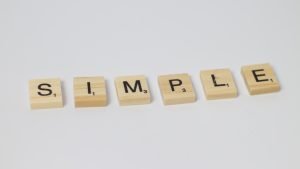Today’s podcast episode is all about Minimalism. I am going to be talking about my top 4 principles of Minimalism that you can implement into your life.
If you’d like a copy of the book I mentioned, you can support the show by using our affiliate link below:
Transcript
Hello and welcome to another episode of the Minimal Minds podcast. I am your host, my name is Alex, and today we’re going to be talking about minimalism, and specifically my top four principles of minimalism, what it is, and it’s been trending for the past few years on the internet, but the actual underlying principles are truly timeless and I’ve been around for thousands of years in one way or another. Living a minimalist lifestyle requires a mindset shift in a few areas, four of those we’re going to be discussing today. The first one is to prioritise simplicity in all areas of your life. Simplicity is a fundamental principle of minimalism and it is incredibly important for a number of reasons.
So, first and foremost, simplicity can reduce stress and anxiety and when we’ve got too many possessions or commitments, it can be really overwhelming and exhausting to keep up with everything. By simplifying and streamlining our lives, we can eliminate the excess and focus on what truly matters. It can also help us be more mindful and present day to day, as we are not constantly distracted by the noise and clutter around us.
Keeping things simple can also lead to greater clarity and focus, allowing us to pursue our goals and passions with more purpose and intention. So by prioritizing simplicity in all the things that we do, we can create more space for the things that truly matter, and live a more fulfilling and intentional life.
The second principle of Minimalism is being content with what you already have and letting go of the idea that you need to keep buying things in order to be happy. You’ve got to understand that you’re groomed by society to feel the need to buy new things. You’ve been subconsciously taught that your life will be significantly better by buying new things and you are not enough without buying new things.
This mental model is what drives the economy. If everybody deep down understood that buying a new thing isn’t really going to make the difference that they think it is, then the whole system would collapse. All you really need in life is food to eat, a place to sleep, and everything else is just an added bonus, really.
Is it better to obtain more things that you wanted? Or to just want less things to begin with. Like I said, it’s all about simplicity. It’s about cutting down to the essentials and eliminating the excess so that you can focus on what truly matters. Minimalists choose not to keep buying things because they believe that material possessions do not lead to lasting happiness.
With all of that said, minimalism is not about deprivation. We all need a certain amount of things. The goal is just to have what you need and those things that you do have are of all high quality and add significant value to your life. So that’s the third principle. A higher quality item will last you longer.
And you will not need to spend more time or money either repairing something or replacing something. So 9 times out of 10, it is worth getting the highest quality item that you can afford. Especially if it’s something you’re going to use everyday that you will rely on. So here’s an example from my own life.
I have a backpack that cost me over £200, and any time I tell someone how much this backpack cost me, I usually get a look of outright disgust. But, I’ve had it for two years, it literally looks brand new, I use it almost every single day, the layout of the pockets is amazing, and… I know this will probably last me for the rest of my entire life.
So that extra money I spent is worth it for the amount of time I’ll get back. Not having to try and fix or replace it. And I love it. It genuinely adds value to my life. Same thing with my flashlight. Cost me 120 quid. Absolutely one of the best things I’ve ever bought. It’s built like a tank and makes the night look like daylight when I go into the dark.
Now here’s the thing. Could I have gotten away with just using the light on my phone? Absolutely. But the difference between the two… Is night and day (pardon the pun). It’s a high quality item that I enjoy using and adds a genuine value to my life So I choose to keep it.
And the final principle I’m gonna be talking about with you today is called the craftsman mindset. This is something I learned about in the book deep work by Cal Newport But before I explain to you what it is, you need to first understand what most people do.
Most people have what is called the any benefit approach and this goes for tools you use like social media and services you pay for as well as things you own and it can even extend to people that you choose to have in your life. A person with the any benefit approach only looks at the benefits of something.
If it has a benefit, then they’ll keep it in their life. Let me give you an example. Instagram, let’s say you enjoy Instagram, right? A benefit of having an Instagram account is that you get to see updates from people in your life and follow things that you enjoy. That’s fine. But what’s the negative? Well, let’s say you spend five hours a day on there and it distracts you so much throughout the day that it’s ruining your productivity.
Is that worth it? Now, a person with the any benefit mindset would say, Yeah, it’s still worth it. I enjoy it. A person with the craftsman mindset would say, No, I value five hours of my day more than the brief high I get from scrolling through pictures. Someone with a craftsman mindset will look at the pros and cons of literally everything and then make a pragmatic decision on whether to have that thing in their life or not.
If something in your life does not serve you, remove it from your life and eventually your life will have so much less clutter both physically and mentally, you’ll end up with way more time, money and energy.
So in summary, my top four principles for Minimism are Prioritize simplicity in everything you do.
And number two is understand that you have enough and that relationships and experiences are more important than physical possessions
Number three is the physical possessions that you do own should add significant value to your life They should serve you
And number four is Rejecting the any benefit mindset in favor of the craftsman mindset
I hope you gained value from this episode And if you’d like my ebook titled Self Development Starter Guide, you can get it for free by signing up to my self development newsletter at theminimalminds.com and if you want to support the show, check out the link in the description. Thank you so much for listening, and I will see you in the next episode.




